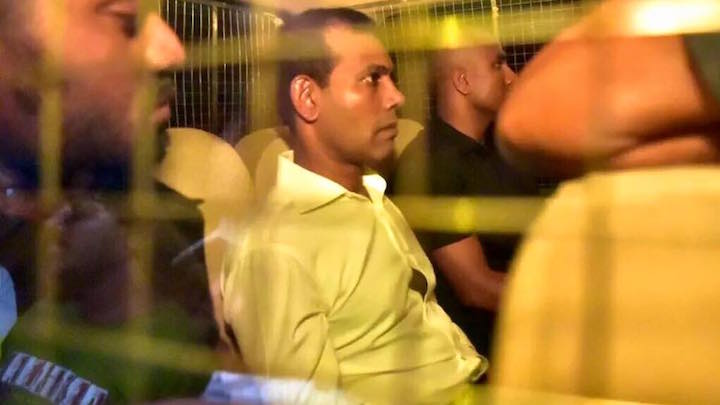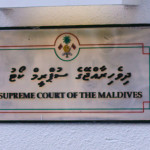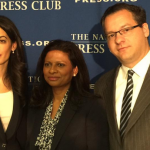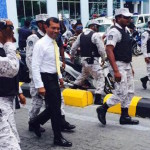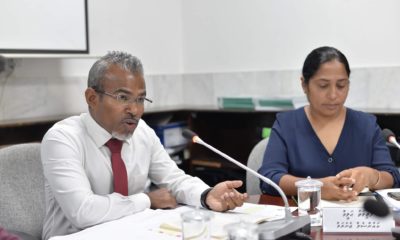Former President Mohamed Nasheed has decided to appeal his 13-year jail sentence on a terrorism charge at the Supreme Court.
Nasheed’s lawyers told the press today that the former president has always called for a “political solution” to his jailing, but President Abdulla Yameen has repeatedly insisted that Nasheed must exhaust the appeal process to be eligible for a pardon.
“President Nasheed is not someone who will remain unrelenting. As President Nasheed’s jailing gets prolonged, it is very clear to him that the Maldivian economy is being adversely affected as a result of foreign pressure,” said lawyer Hisan Hussain.
“Therefore, President Nasheed has now decided to seek a solution through the judiciary as urged by President Yameen.”
A UN human rights panel had ruled that the opposition leader’s imprisonment in March was politically motivated and arbitrary, but the government rejected the non-binding opinion as “flawed and premature.”
Nasheed’s high-profile international lawyers have since launched a campaign lobbying world leaders for targeted sanctions against senior officials of the state.
The lawyers have previously maintained that Nasheed was deprived the right to appeal after the criminal court refused to provide a full transcript of the trial within a shortened 10-day appeal period.
Yameen had meanwhile declared he would not bow down to foreign pressure and release Nasheed, whose imprisonment had triggered a political crisis with daily street protests and mass anti-government demonstrations. The UN secretary general and human rights as well as UK Prime Minister David Cameron and several international human rights organisations have called for his release.
In the face of growing international pressure, the Prosecutor General had appealed the conviction at the High Court in September. But the appellate court refused to hear the case on the grounds that it was submitted by the state and not the former president.
Despite not hearing oral arguments from both sides, the High Court judges had also ruled that Nasheed was not deprived of his constitutional rights during the 19-day criminal court trial.
Meanwhile, in late November, the Supreme Court accepted the state’s appeal of the High Court decision.
Lawyer Ibrahim Riffath explained today that Nasheed did not want to appeal at the High Court because two of the three criminal court judges who had sentenced him – Abdulla Didi and Sujau Usman – now sit on the appellate court’s bench.
Of the five judges on the Malé branch of the court, Riffath noted that the other three had rejected the PG’s appeal and endorsed the lower court’s verdict.
The three-judge panel had ruled that Nasheed was afforded the constitutional rights to adequate time and facilities for the preparation of his defence, to communicate with and instruct legal counsel of his own choosing, to examine the witnesses against him, and to obtain the attendance and examination of witnesses.
But the UN Working Group on Arbitrary Detention – a specialised agency comprised of five independent experts – had found that the criminal court’s refusal to allow Nasheed to call defence witnesses and the absence of legal representation during key points of the trial constituted violations of due process.
The WGAD also said the Maldivian government was unable to demonstrate the legal basis for the terrorism charge. Nasheed was found guilty over the military’s detention of a judge in January 2012.
“[T]he Government has not explained how the arrest of Judge Abdulla, which was carried out by the MNDF (Maldives National Defence Forces) under an order given by a third party, could constitute terrorism,” the opinion read.

